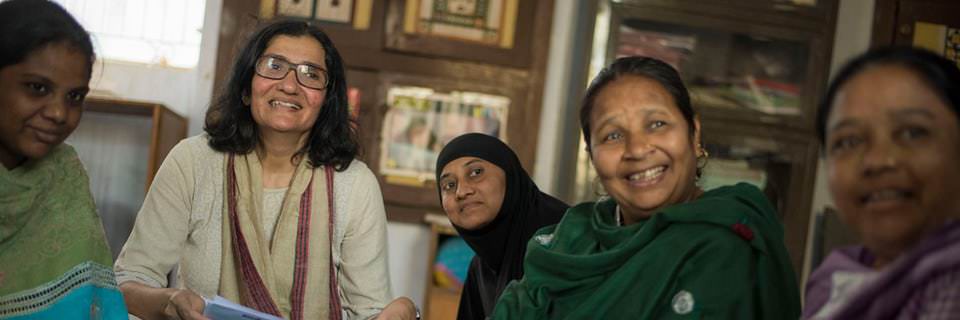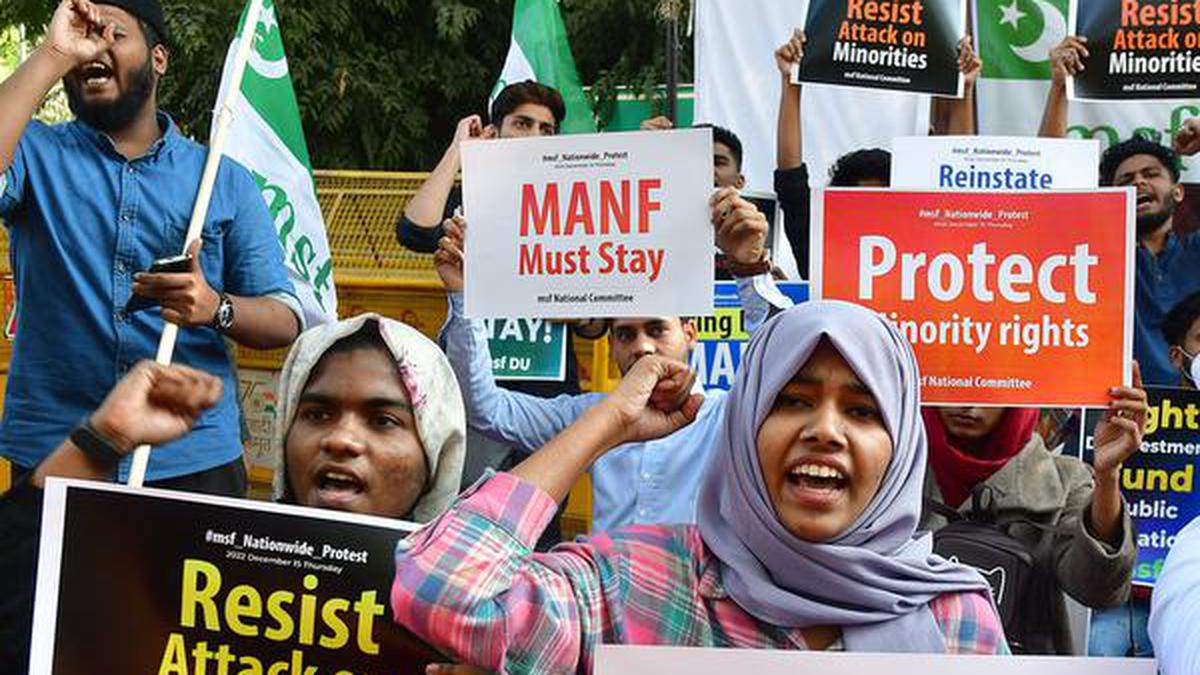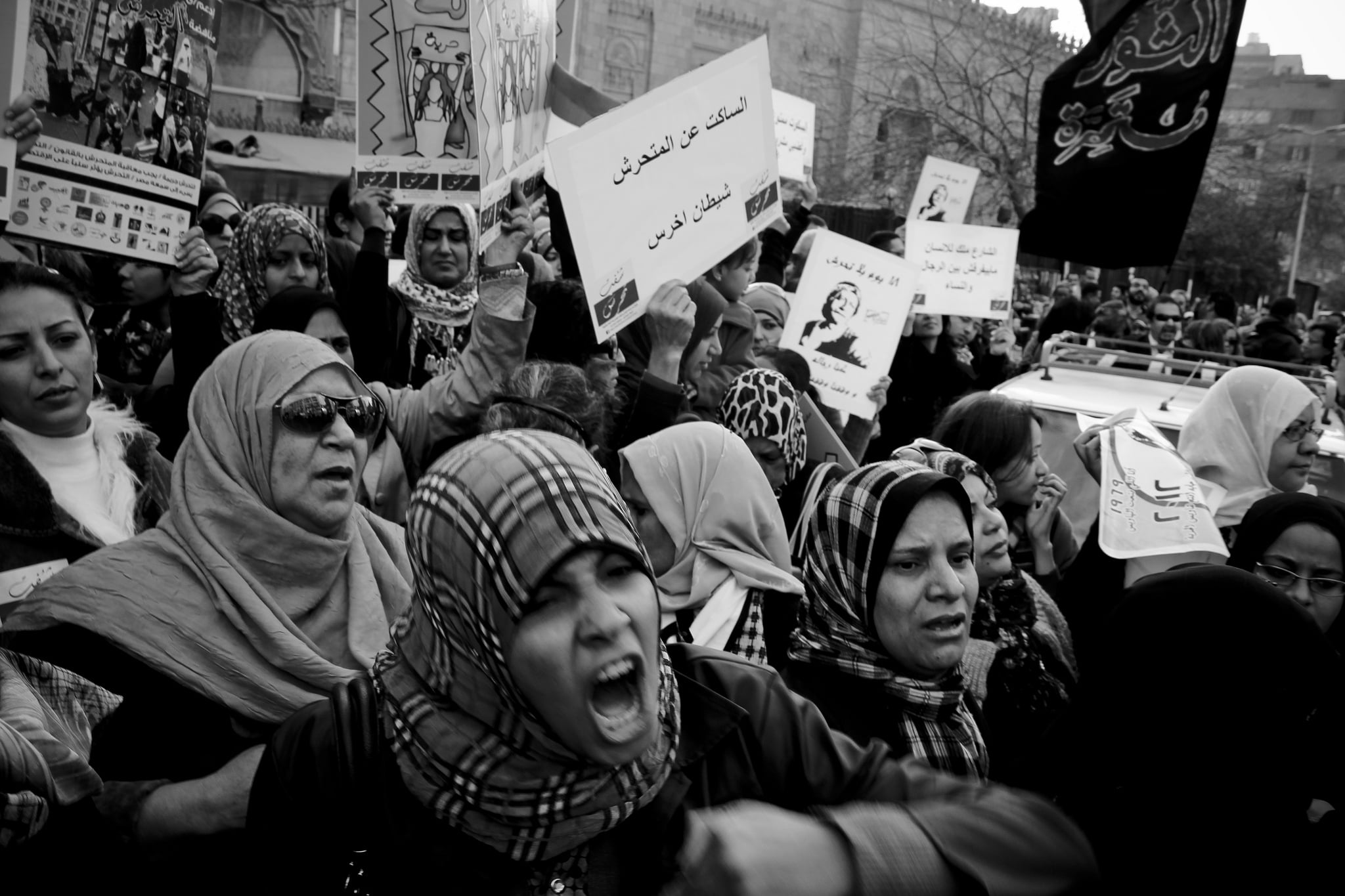Last week brought a much needed relief to Muslim women in India, as the Supreme Court put an end to the sexist practice of Triple Talaq. Amidst the celebrations that followed, there were also questions raised as to how could such religious practices have stayed on in society despite our growing claims of equality, and also how we can ensure an uprooting of such practices. The answer to both of these questions lies in the participation of women in religious structures, or its lack thereof.
Religion as a deep-rooted structure of customs, practices, and ‘morality’ operates within a patriarchal framework and is thus extremely sexist itself. No matter which religion we consider, rules have been formulated such (at least in practice) that women have always been the second grade participant, with lesser rights and an unheard voice. The Triple Talaq verdict coming at this point enables us to then, examine critically the role of women within specific religious frameworks.
On February, 2016, Bhartiya Muslim Mahila Andolan (BMMA) announced the establishment of the Darul Uloom Niswaan [DUN], a centre for Islamic Learning. As a step towards gender equality, it endeavoured to train around 30 women to become Islamic clerics or Qazis, a job that has been inherently occupied by men.
Qazis who are responsible for solemnising marriages, overseeing settlements, and domestic troubles, and orchestrating divorces have a huge role in determining the practices of people. But the lack of women Qazis has led to the entire narrative being male-dominant and careless towards the demands and rights of women. A lot of women, at the time of their marriages are unaware of the clauses mentioned in their own nikah-nama, and the possibilities of making it more women-friendly, thereby leading to increased exploitation. The advent of women Qazis has therefore ensured a more equitable treatment of men and women.
The Triple Talaq verdict enables us to examine critically the role of women within specific religious frameworks.
The new batch of female Qazis ensures that the scrutinising eyes of religion become impartial in its treatment of the bride and the groom, that the qualification and income of both partners is made clear, and that the reason and procedure of divorce is fair. More importantly, considering the present context, the job of a female Qazi would be to ensure that women are not told to ‘bear’ or consider it their ‘fate’ to be in a mentally or physically exploitative marriage. Further, having women clerics would also keep in check the working of their fellow male Qazis, something that has till now been out of the purview of criticism.
The presence of women Qazis definitely ignites the possibility of the religious arena becoming more gender equal. It lends women the hope of being able to exercise their rights, while being backed by a religious order that truly supports equality. It will also ensure that women are not ridiculed for going against the popularly accepted religious practices, which may in fact be more cultural than religious, but clearly patriarchal.
Women Qazis have only just started operating in India, but with the abolition of Triple Talaq, their effects in the lives of people are clearly visible. However, they are far from gaining a proper acceptance amongst the people, and especially amongst the sexist ‘mullahs’. In 2016, the All India Muslim Personal Women’s Law board appointed two women Qazis (Hena Zaheer and Maria Fazal), but limited their role to arbitration and counselling for fear of upsetting the conservatives. The attitude of the hegemonic groups clearly show the struggle that the women Qazis are yet to face.
It would still be a long time that women Qazis are looked at with the same respect and trust that male Qazis get, but as a society we have perhaps, gained the right momentum. A female Qazi may not be performing the next nikah ceremony we hear of, but the fact that they exist and can be called upon to preside over these ceremonies, is a fresh respite from the doctrines of patriarchal religion.
Also Read: A Woman-Friendly Nikah-Nama And Muslim Women’s Right To Divorce
Featured Image Credit: The Quint




